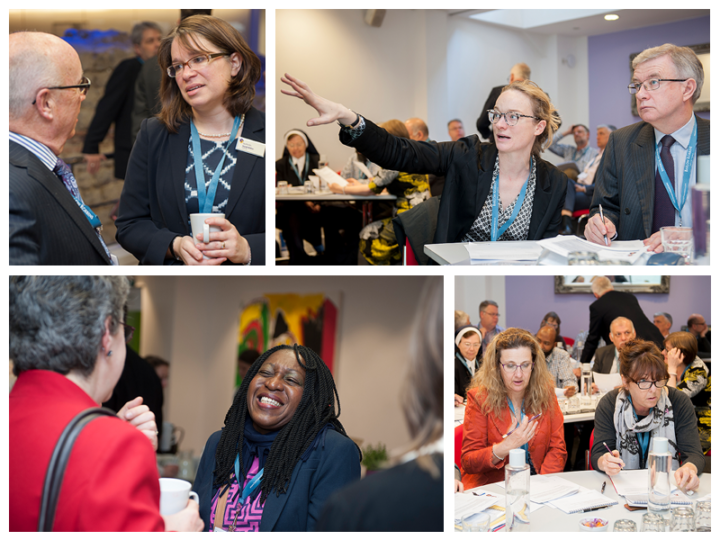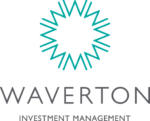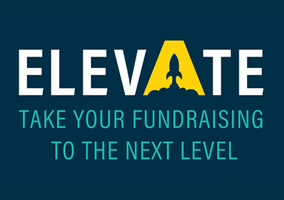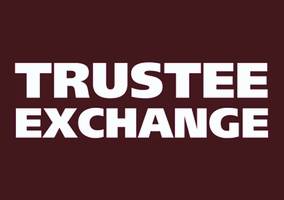We are delighted to announce the return of the 14th annual Trustee Conference. In 2022, Trustee Exchange will take place at America Square, London. As always, we bring you a mix of technical and regulatory updates alongside examples of great practice in governance and leadership, lively panel debates, and inspirational case studies.
There will be plenty of opportunities throughout the day to connect with your fellow delegates, share your issues and your knowledge, and get professional advice from sector experts. Always a sell-out event, we encourage you to book your place as soon as possible to avoid disappointment, and we look forward to seeing you on the day.
Programme
04 May 2022
-
9.00AM - 9.20AMRegistration, refreshments and networking
-
9.20AM - 9.30AMChair's welcomeTania Mason, editor, Governance & Leadership
-
9.30AM - 10.10AMOpening keynote: The long road to anti-racismThe past couple of years have exposed just how far the UK still has to go to be a genuinely equitable society. Closer to home, institutional racism and toxic cultures within the charity sector have never had a higher profile. Mark Norbury is determined that UnLtd, the foundation for social entrepreneurs which he has led since 2016, should truly embody diversity, equity and inclusion, and believes it is incumbent on white leaders like himself to own the issue, educate themselves and be genuine allies.
From how it assesses its grant applications to the way it carries out its support work, from the composition of its board and management to diving deeper through an equity audit, UnLtd is taking real action to address its failings. Yet achieving progress is hard. In this warts ‘n’ all opening keynote, Mark will share UnLtd’s journey so far and outline why “not being racist” is not good enough – an actively anti-racist position is the only one that will deliver meaningful change.
Mark Norbury, chief executive, UnLtd -
10.15AM - 11.00AM1A. First-class finance supervision: who, what, when, why and howWe all know that the trustee board carries ultimate responsibility for the charity’s financial health and sustainability. But how does this really work in practice, especially when so many trustees feel out of their depth when it comes to the finances? What are the roles of the chair, the treasurer, the subcommittees, the finance director and the auditor – and how should they all relate to and engage with the wider board to improve knowledge and understanding? Join this practical, interactive session for a masterclass in relationship-building to help your trustees get a deeper grip on financial stewardship.
Judith Miller, partner, Sayer Vincent -
10.15AM - 11.00AM1B. Shining a spotlight on the activities of trusts and foundationsPrivate UK grantmaking foundations own assets totalling more than £62bn and give grants totalling more than £6.5bn a year. Yet they are almost uniquely unaccountable and the composition of their trustee boards (99% white, two-thirds men, average age 65) means they are wholly unrepresentative of the communities they serve. A group of forward-thinking foundations have decided to address this accountability vacuum by creating an annual rating that assesses foundations on their diversity, accountability and transparency practices. Using publicly available data, the new Foundation Practice Rating aims to highlight best practice and to encourage foundations to raise their standards in those three areas.
Danielle Walker-Palmour, director, Friends Provident Foundation and Caroline Fiennes, director, Giving Evidence -
10.15AM - 11.00AM1C. Lived experience on nonprofit boards with the Centre for Charity Effectiveness (CCE), Bayes Business School
Three charities discuss their experiences of actively developing lived experience on their boards. Many charities are looking to increase the diversity of their boards and considering the benefits of recruiting trustees with lived experience expertise, to bring into the boardroom greater insights into the needs and experiences of those they seek to support. We’ll also share insights from the development of CCE’s growing online resource Lived experience on nonprofit boards, combining CCE’s knowledge and research with direct experiences and learning generously shared by a wide range of charities.
Host: Jacqueline Williams (CCE). Panel: Stephanie Papapavlou, Director of Impact and Innovation, Leap Confronting Conflict; Peter Olawaye, Vice Chair, Leap Confronting Conflict; Ambreen Shah, Trustee, Smallwood Trust; and Kate Hitchcock,Trustee, National Association for Children Abused in Childhood (NAPAC).
-
11.25AM - 12.10PM2A. The changing role of the trustee in the audit cycleWhat level of audit information should trustees receive in order to fulfil their duties and what challenges should they have of their auditors as opposed to their management team? Join this session to improve your knowledge of the role that trustees take in the audit cycle and what their remit is in complying with the ever-increasing regulations around audit.Richard Weaver, head of charities and not for profit, haysmacintyre
-
11.25AM - 12.10PM2B. Charity Commission priorities: forecasting the future by analysing the pastRegulators relaxed some of their requirements during the pandemic as charities reacted to the emergency and switched into crisis-response mode. But this flexibility can’t last forever, and charities will need to resharpen their compliance tools. In this session, Shivaji and Con will probe the trends in charity law and regulation over the past 18 months, drawing on Charity Commission inquiry reports and other guidance, to predict some of the issues and
concerns that look likely to be priorities for the Commission and its caseworkers as they return to more of a business-as-usual regulatory environment.
Con Alexander, partner, VWV and Shivaji Shiva, partner, VWV -
11.25AM - 12.10PM2C. A digital-first approach to governance: the future of modern charity boardsThe pandemic has demonstrated how a digitalfirst approach can reinvent working practices, rebalance work and personal lives and deliver more efficient services to greater numbers of people. Now it’s time to consider how a similar transformation could take place in the world of charity governance. New technologies can help boards to set the digital agenda by facilitating the efficient interrogation of data, speeding up communication and providing tools to assess risks and opportunities and set strategy. Join this session to learn what “digital-first” means in a governance context and how it can underpin more effective trustee decision-making.
Ed Rees, sales director, BoardEffect -
12.15PM - 1.00PM3A. How to hold your fund manager to account on the climate emergencyThe COP26 summit has highlighted the huge role to be played by investors in responding to the climate crisis and tackling other global problems like biodiversity loss and inequality. Cazenove’s own net zero ambition is made more challenging by the fact that it is a significant investor in other managers’ funds, as well as investing directly in companies.
However, this means it has an opportunity to use its influence to drive change and in 2021, Cazenove quizzed 140 fund managers on their ESG credentials. Join this session for an overview of how the investment management industry is performing on the journey to sustainability and some advice on the questions to ask your fund manager to ensure that their activities are fully aligned with your charity’s values and commitment to decarbonisation and a net zero future.
Kate Rogers, head of sustainability, Cazenove Charities -
12.15PM - 1.00PM3B. Confessions of a chief executive: the double-edged sword of more professional boardsThe recent drive to increase professional skills and experience on charity boards was undoubtedly well-intentioned, but if the balance tips away from a majority of trustees that are mission-focused in favour of a majority that are compliance-focused, this can seriously increase risk-adversity and curtail the charity’s potential. Sue Freeth is an experienced charity CEO who has observed the mounting regulatory burden and accompanying board emphasis on
accountability and compliance with growing unease, and she wants to start a conversation about it. Join this interactive session for an honest appraisal of the current state of charity governance from a chief executive in a position to know.
Sue Freeth, chief executive, Lifecare (Edinburgh) -
12.15PM - 1.00PM3C. Bucking the trend for smaller boards: a case study from All We Can and Y Care InternationalWhile recent trends have tended towards reducing the size of boards, international development charity All We Can has deliberately enlarged its board as part of a comprehensive programme of work to increase trustee diversity, boost the effectiveness of committees and make meetings more dynamic. Not only that, but its recent merger with Y Care International has also doubled the board’s responsibility and workload, requiring the implementation of more transparent and efficient governance structures and systems. Join this session to hear the story of one charity’s impressive efforts to ensure trustees are fully engaged with the cause and with their role as governors and stewards.Graeme Hodge, chief executive, All We Can and Y Care International
-
1.00PM - 2.00PMLunch, networking and time to visit exhibition
-
2.00PM - 3.00PMCo-production, prototyping and beyond: The true meaning of a person-centred approach to service deliveryInvolving people with lived experience of your cause in the design and implementation of your services is something that many charities aspire to, but few have yet achieved. Fewer still have handed the conception and prototyping of their entire ways of working to those they seek to support. Join this session for an illuminating discussion among three charities that have listened, reflected, challenged and changed their organisations in order to create the environment for truly person-led work to flourish.
Chair: Elizabeth Balgobin, charity sector consultant and interim manager; Arfan Hanif, chief executive, Touchstone; Alex Fox, chief executive, Mayday Trust; Thomas Lawson, chief executive, Turn2Us, Heather Blake, chief executive, Changing Faces -
3.00PM - 3.25PMRefreshments and networking break
-
3.25PM - 4.10PM4A. Fundraising: Beyond compliance to best practiceIn a regulatory environment where boards are legally responsible for their organisation's fundraising practices, it is critical that trustees understand not just what compliance looks like, but also how to champion best practice. In this session, Gerald will examine the role of fundraising in governance and offer some advice on the types of questions that trustees ought to be asking their fundraisers in order to achieve assurance. In addition, he will provide an
update on current projects at the Fundraising Regulator, such as its upcoming strategic plan and its impact on fundraising charities.Gerald Oppenheim, chief executive, Fundraising Regulator -
3.25PM - 4.10PM4B. Safety first: Boosting protection for whistleblowers, including trusteesWhistleblowing charity Protect’s pilot project investigating whistleblowing culture in mid to large sized charities uncovered some concerning findings, including weak spots in training and confidentiality. Protect knows from its Advice Line that many charity workers do not feel safe about speaking up, or confident their concerns will be listened to. Not only that, the UK whistleblowing law, the Public Interest Disclosure Act (PIDA) 1998 fails to protect charity volunteers who have cause to raise the alarm about bad practice in their organisations – and that includes trustees. Protect is campaigning to update and reform PIDA. Join this session for some expert advice on how to operate an effective whistleblowing system within your charity, and steps you can take to improve protection for trustees.
Liz Gardiner, chief executive, Protect -
3.25PM - 4.10PM4C. A journey of reinvention to achieve more impact: a case study from Forces in Mind TrustForces in Mind Trust (FiMT) is a lotteryendowed, limited-life grantmaking charity, set up in 2011 for with £35m. Its purpose over its 20-year lifespan is to support those leaving the armed forces as they make the transition to civilian life. In its first few years, the Trust responded to needs as they arose, funding veterans’ charities as they applied. But more recently, the new chair and CEO decided to take a more strategic, impact focused approach that sought to treat causes, not symptoms. As well as changing the composition of the board to match the charity’s new direction, the Trust identified and nurtured allies in national and local government and was able to heavily influence the government’s first Veterans’ Strategy.
Hans Pung, chair, and Ray Lock, former chief executive, Forces in Mind Trust -
4.15PM - 4.45PMClosing keynote: What next for the charity regulator?
In his closing keynote address, Orlando Fraser will cover two important issues going forward, namely:
-
his general priorities for the Charity Commission
-
the Commission’s specific approach towards trustees
Orlando Fraser, chair, Charity Commission
-
-
4.45PM - 4.50PMChair's closing remarks
-
4.50PM - 5.30PMNetworking drinks reception
Prices
| Early-bird (booking made by 1 March) |
Bookings after 1 March | |
| Small charity rate (<250k income) | 199 | 199 |
| Charity delegate | 269 | 319 |
| Charity extra place(s) | 169 | 219 |
| Charity team ticket (up to four places) | 649 | 779 |
All prices excluding VAT
Testimonials
An excellent event to attend - in one day it provides a wide range of current advice directed to charity trustees and staff, in one place. Duncan Bridges, Malvern Hills Trust
Very useful - good range of sessions to choose from. Came with 3 of our trustees - excellent team building opportunity. Jordan Bambridge, YMCA Trinity Group
Excellent update on key current issues. Jill Thompson, Breast Cancer Care & Breast Cancer Now
A vast array of topics, well chaired and presented, with options to explore further. Deborah Layde, Seafarers UK
A very useful opportunity to take a step back from day to day pressures, reflect on strategic priorities and future challenges and learn from others knowledge and experience. Brian Burgees, Brentford FC Community Sports Trust
Encapsulates the essentials for charities big and small. A must for an effective charity. Chris Canfield, James Marshall Foundation
My first attendance herem but I certainly hope to return: informative, current and provided fantastic insight throughout. Well worth the time - investment as this represents days, even weeks of research condensed into just one day. Dale Hoyland, Vegetarian Society
Very informative and inspiring. Bernice Rook, WPT
Contact
For sponsorship and exhibition queries contact Matthew Nolan
For registration queries contact Carys Pugh
For media partnerships and marketing queries contact Kirsty Brown
Terms & Conditions
- Payment
- Registrations will not be fully confirmed until correct payment is received. If you have any issues with payment, please contact [email protected]
- Programming
- Please note that speakers and topics were confirmed at the time of publishing, however, circumstances beyond the control of the organisers may necessitate substitutions, alterations or cancellations of the speakers and/or topics. As such Civil Society Media Ltd reserves the right to alter or modify the advertised speakers and/or topics if necessary. Any substitutions or alterations will be updated on our web page as soon as possible.
- Event attendance
- Delegates are required to observe and comply with all laws, regulations, rules and requirements relating to COVID-19 and which Civil Society Media has adopted as part of its operations. Civil Society Media will communicate the COVID-19 Measures to you from time to time including and without limitation via pre-Event emails, its social channels and the event website
- Civil Society Media reserves the right to alter or remove its COVID-19 Measures at any time in response to the latest guidance or legislation from the UK Government or as otherwise deemed necessary by Civil Society Media in its discretion.
- Civil Society Media reserves the right to eject you or refuse you entry from the event if, in our reasonable opinion, you are refusing to comply with any COVID-19 Measures without reasonable grounds.
- Cancellation or reimbursement
- On receipt of your booking form, your place is confirmed. Delegate substitutions are allowed. Refunds on cancellations will only be issued (less a 15% administration charge) up to and including 30 days prior to the event. Refunds will not be issued after this date. Confirmation of cancellations MUST be in writing and sent to [email protected]
- Individual registrants who registered as part of a discounted group registration are not eligible for refunds, unless the entire group cancels. Registrations may be transferred to another person from the same organisation at any time.
- Postponement or Cancellation of the Event by the Organiser
- Should we have to cancel or postpone due to COVID-19 we will endeavour to give you as much notice as is reasonably possible.
- In the event that we have to postpone the Charity Finance Summit due to COVID-19, we will transfer your ticket to the next alternative date.



![BayesBusinessSchool_DigitalLogo[1].jpg](https://www.civilsociety.co.uk/static/9a5f04c3-3faf-4dd2-b167e33ed3656858/200x140_highestperformance_/BayesBusinessSchoolDigitalLogo1.jpg)


















